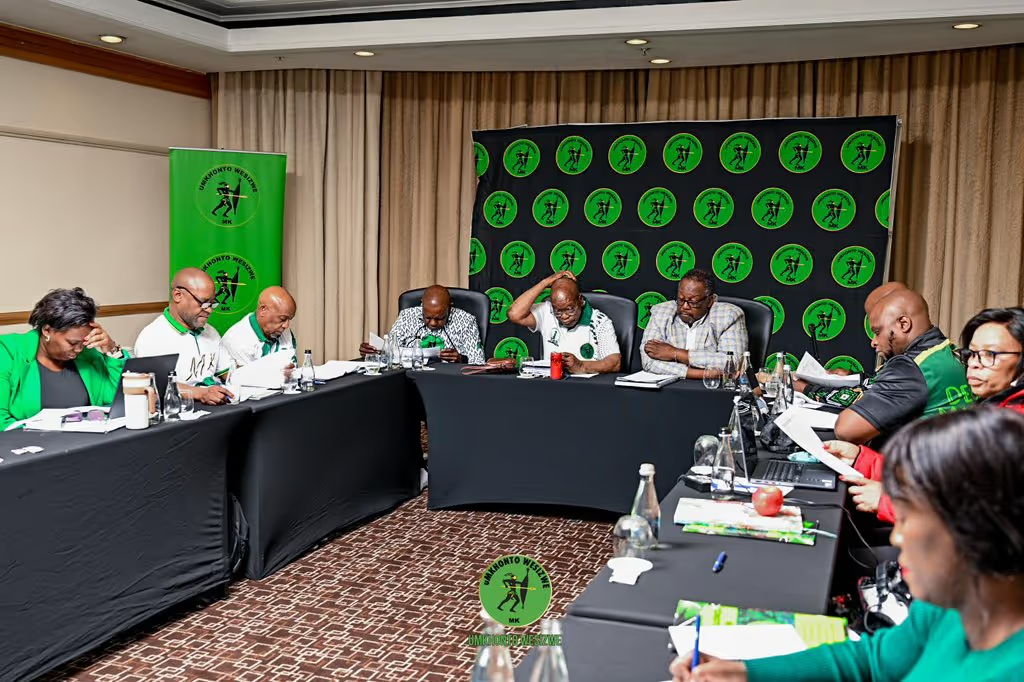The parents of the 21 children who succumbed at Enyobeni Tavern in June want answers about what really happened to their kids. The explanation they were given, they say, doesn’t make sense at all. Siyanda Manana, spokesperson for the EC Department of Health says they were advised by their legal team to not issue the report to the families because it must be handed over to the South African Police Services (SAPS) to assist with on-going investigations. Parents were told that their children suffocated and that, in terms of the Prevention of Personal Information Act, they cannot disclose the cause to the public, only to the parents.
CRIMINAL CHARGES AGAINST
In a statement last week, the NPA said the postmortem report, which they do not have yet, will play a major role in the possible additional criminal case against Enyobeni tavern owner, Vuyokazi Ndevu (43), and her husband, Siyakwamkela Ndevu, who is the tavern's manager. The two have been charged with selling or supplying intoxicating liquor to persons under the age of 18, and the responsibility for permitting employees and agents to sell or deliver intoxicating liquor to minors. In August and September 2022, the two appeared at the East London Magistrates'Court where the matter was postponed to 5 October 2022 for a pre-trial. “The leg of the case which relates to the release of the toxicology report concluded by health experts is still under investigation by the police. The NPA awaits a docket from the police, before deciding on possible further charges,” said Luxolo Tyali, National Prosecuting Authorities’ regional spokesperson in the Eastern Cape. One of the parents who lost her daughter at the tavern, Xolile Malangeni, is infuriated by the prospect of hearing the full details of his daughter’s death for the first time in a courtroom. That is if he gets the chance to be there. During the two accused’s court appearance in September, his wife, Nombulelo as well as 18 other parents were not allowed inside the court due to limited space. She claims that they were told that only two parents may be allowed in. He strongly believes that the Liquor Board has to get on top of underage drinking and compliance. As a former bouncer at a local club, Malangeni is fully aware of what compliance looks like.
UNDERAGE DRINKING
According to Aware.org, 50 per cent of South African teenagers drink alcohol. The research shows that 13% of boys and 8% of girls will try alcohol by the age of 13. Following the devastating Enyobeni Tavern incident, the Eastern Cape Liquor Board (ECLB) has launched two initiatives to curb the scourge of underage drinking targeting 20 high schools and townships in the Buffalo City Metro. Malangeni has publicly lashed out at the Eastern Cape Liquor Board for allowing 7 000 liquor outlets to operate in such a small town with just six inspectors. “Are they trying to kill us? Why grant so many licences in such a depressed society with very limited supervision?" he asks. Pumlani Fani, Senior Communication and Marketing Officer for the ECLB, says alcohol consumption among underage persons is a cause for concern. “We want to curb alcohol abuse and non-compliance among liquor traders. Trading conditions attached to every liquor licence include the prohibition of the sale of liquor to underage persons. Members of communities must report cases where liquor outlets admit young people into their establishments and serve them alcohol,” Phumlani said.
UNCERTAIN FUTURE
Their findings show that alcohol abuse in the Metro is compounded by the high rate of unemployment among the youth and the mushrooming of illegal liquor outlets. Research done by theGovernment and the South African Breweries indicates that, “with only half of our youths living in two-parent households, the prospect of 25% to 35%unemployment, South African teenagers face uncertain futures which drive them to hit the bottle early." Kholeka Mbengwa, a Learner Support Agent at an Amalinda High School agrees that the 50% mark in underage drinking is accurate. Mbengwa was tasked with the responsibility to support learners who had survived the Enyobeni tavern from her school. “Alcohol, drugs, and knives you name it, they bring them into the school premises. The tragedy has not slowed them down. When I walk in my neighbourhood, I bump into my learners from the ages of 13, drinking in public. They greet me and then down a cider,” she details. According to the sessions she has held with them, they claim that there is no fun without alcohol. Some claim that their relationships are a cause of stress that can only be cured by drinking. While a consolidated multi-stakeholder approach is being sought, parents such as Malangeni are hoping to get closure so they can assist in protecting the children that are still alive and their future.







